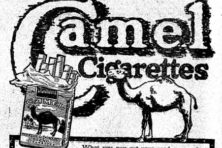The Worm Atlas
- Share
- Tweet
- Pin
- Share
Leo Keller pushed his shovel back under the ground. About nine more shovelfuls and he could empty his bucket. The hole was a good six feet deep but the area had a nice water table. The damn thing shouldn’t fill up for a long while. If it did he’d probably sink to his knees in muck and watch the water rise around him. A watery grave in Gleason, Wisconsin. The townspeople would talk. He’d survived thirty-eight years sawing lumber in the mill, but a self-dug mud hole? That’d do her.
Leo thought about a lot of things down there. There wasn’t much else to do when traveling north, or south. He kept confusing the two. Old age had a way of erasing his Boy Scout knowledge of magnetic polarities, compasses, and direction. All of those concepts had floated away long ago. He knew displacing dirt from under his feet made him fall an inch or two at a time. Falling meant down and downward meant south. Unless one was already south, in which case downward meant north.
He pried through layers of organic history. The shovel had previously belonged to Leroy Keller, his father. They say a soldier’s weapon of choice eventually becomes an extension of the body. Leo understood this for the first time. He braced his foot over the shovel and stomped. It happened again. It was one of those wonderful moments where the shovel became blocked by a root. He couldn’t see the cord through the muddy flesh but instead felt the enormous strain his weight placed upon it. Leo’s eyes rolled up in their sockets when the root snapped and the tension was gone. He set his shovel aside and cracked his knuckles, then his neck.
The bucket was attached to a makeshift pulley system. Each pull on the rope required closed eyes because of the way the bucket would jostle about and spill its contents. Leo chuckled and thought of the local weather forecast for the pit: cloudy with a chance of grit. He held the rope steady with his left hand while using the shovel in his right to flip the bucket outside the hole. Sweat and dust had combined to cement his dark blue jumpsuit. Each movement broke fissures in the hardened fabric. He wiped his brow and uttered, “Goddamn.”
He spoke to the roots and the worms disguised as them. The little tube creatures came and went in the many hours of digging. Every now and then one would break into the abyss from above. Leo remembered the stories he heard about early explorers who feared sailing off the edge of the world. For a moment he imagined the worms in little ships. They were eager to navigate, and with resolve they stuck their thin little heads in the air like index fingers and proudly stated:
“We, the worms, hereby proclaim north to be the direction of travel which best suits our purpose!”
Leo was unsure of what a worm’s purpose might be or how one would understand the concept of “north.” Sometimes they sailed over the edge and landed in his hair or on his shoulder. They always ended up in muddy footprints. He noticed how the same thing had happened to the early explorers of men. They fell off the Old World just to become entrenched in more dirt.
Digging deeper was the only reasonable option. Why even try to expand horizontally? After a while it wouldn’t even be a hole anymore. He’d be left with just a crater. Dig that crater too wide and then what? Well then he’d be stuck with some lousy lowland and no one would ever buy that—not that anyone would buy his property anyways. Most of it was swampland aside from the area where he was digging. He’d dig a hole to China. Maybe he’d dig a hole to the Arctic Ocean and flood the whole goddamn county. No, people can’t own a body of water unless it’s bottled and capped.
Leo watched another brave explorer take the plunge. The little thing landed in some mud next to his foot. How come it didn’t get hurt? He figured people had a lot of baggage, and worms traveled light. It decided to acquaint itself properly by inching its way over to his shoestring.
Was he looking at the worm’s head or ass? Were the two the same? He wondered if people were just large tubes. How could he address the thing if he couldn’t even figure that part out? Did it plan on sticking around?
It wiggled impatiently so as to say, “No, I’m just following my friends.”
“Which direction are all you worms headed? South?” asked Leo.
“Why of course not, we’re headed north,” it replied by burrowing into a crack in a bootprint. The worm knew geography.
Leo continued to dig. The ghosts of early explorers had dug trenches. They learned from the worms too. In a world where the open air dried and cracked one’s skin one learned to adopt whatever system saved his hide. If that meant down was north and up was south then so be it. Those ghosts followed the worms northward and so would Leo. Leave it to humans to seek a world where clawing through dirt was the path of least resistance.
He brought his grandfather’s ladder and began to climb his way in and out. Three weeks had gone by since he began digging. The hole was eleven feet deep and as Leo often looked into the sky, he talked to some worms. He listened to them and learned their geography. He wondered if it made the worms angry when he heaved them back up to the surface where the sun and wind could dry them out for the birds to eat. The walls which surrounded him were cool to the touch. They could cave in at any moment, yet that thought was somehow reassuring. The dirt breathed when he breathed. He watched white chlorine gas float away from his mouth and poison the roots and worms around him. Silken creatures danced about near his feet. They shined in the dark light and shared the knowledge of their atlas. One day he found a dead thing that looked like a snake. He wondered if he had unearthed the remains of the worm king. Was this what they were searching for all along?
Over time the soil began to get a bit tough. He was fifteen feet deep and the dirt that once easily crumbled gave way to clay which had to be sliced and exported in chunks. Worms fell from above and pooled at his feet since the ground was no longer porous. He tried to avoid stepping on them but it was no use. For each worm he sent to death in the sky, he trampled ten more. His boots worked their soft pink flesh into the hard red clay. Human fingers played with earth that hadn’t been touched since glaciers placed it there. He molded a tiny clay effigy of himself and then rolled it into a worm.
With each movement he thrust into new territory. The walls no longer breathed in what had become a clay esophagus. Instead, they salivated. The sky above became increasingly narrow with each passing hour and deep down Leo knew he was being swallowed. A leather drum beat in his chest. He expected to unearth permafrost at any moment. Maybe he’d find one of those Indians from the Ice Age, skin like leather after being preserved in a timeless chill. Maybe he’d take the fellow explorer up top and build a campfire to warm him. He’d thaw him out.
When dead things thawed they fell apart.
The next day Leo’s shovel hit something solid. After an hour’s work he was seventeen feet deep and could dig no more. His hole had a floor of limestone. It was perfectly flat with rough grooves like the bottom of the sea. He had to use a flashlight just to identify it. He wondered what the worms would do if they made it this far. He knew their geography ended with the worm king and his throne of clay. The horizontal surface barred Leo from further travel since it stretched east to west, or the other way around. It didn’t matter. Leo wasn’t in the tunnel-digging business.
Leo climbed the ladder, which barely made it to the top of the hole. He pulled it out along with the rope and bucket. To the east were mountains of earth he’d deposited. They were burial mounds for the corpses of displaced worms and bloody roots. He removed the bucket from the rope and adjusted its length. Muddy fingers tied it off in a loop. He wrapped that loop around his neck, which reminded him of the worm king. His flesh was soft and warm to the touch. His pulse rapidly danced across his fingers. Evidently his bloodstream had been clogged with clay all along, its center a limestone root, with buried cracks not visible under muddy flesh. Even shortfalls created enough tension to break limestone.
Leo Keller thought about the roots, the worms, the worm king, the salivating earth, and the invisible Indian it had swallowed. He thought about sailing off the edge of the world, with his finger in the air proudly proclaiming:
“Yes! We shall head north!”


